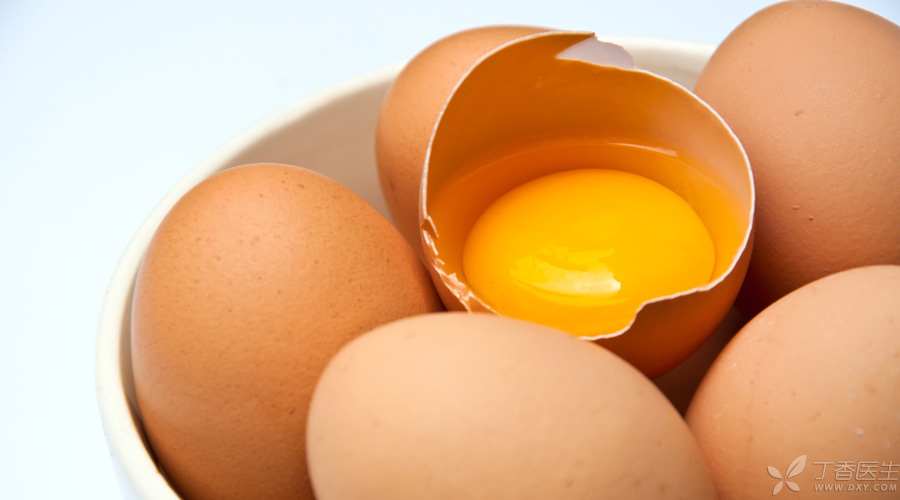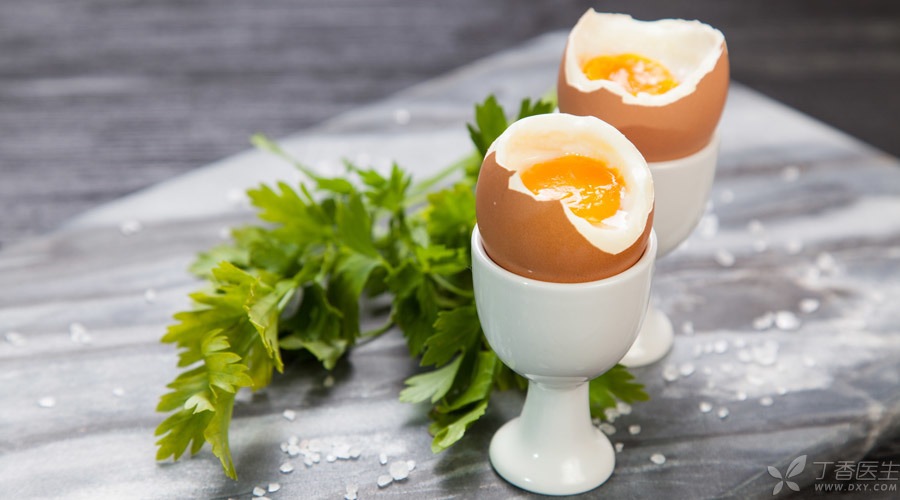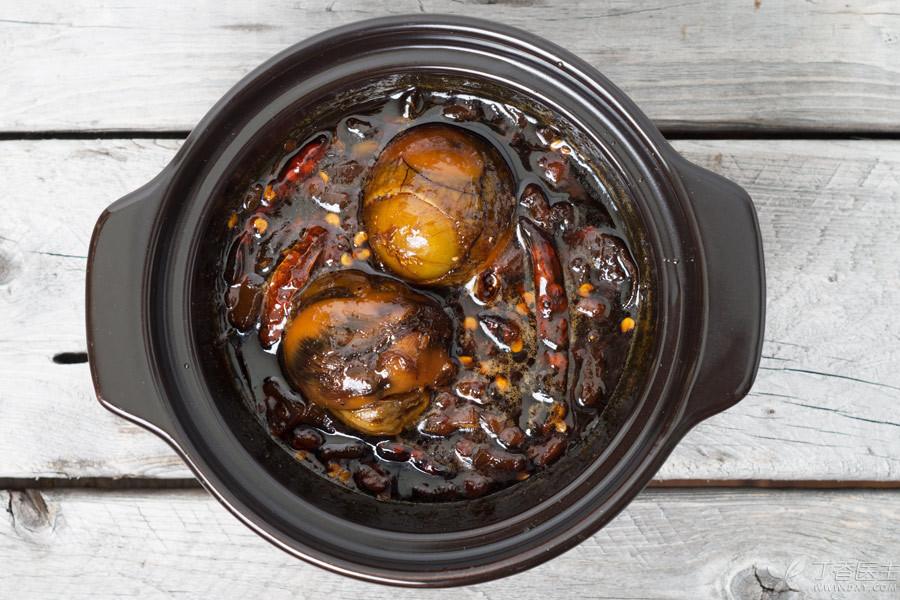
Eggs are one of the most used ingredients in daily life.
An egg contains about 7 grams of protein, all eight essential amino acids needed by the human body, and is rich in lecithin. Moreover, the protein type and amino acid composition ratio of eggs are perfect, second only to breast milk.
In addition, the price is close to the people and the production methods are varied. Eggs are simply the best and cheapest food on the planet.
It is also because it is the most common and commonly used ingredient that there are the most questions about eggs.
Dr. Clove sorted out 7 common questions to answer the doubts of readers and friends.
Can I have raw eggs?
It is not recommended for the elderly.
Eating raw eggs is risky.

1. Infection with acute gastrointestinal diseases
Pathogenic bacteria such as Salmonella can easily invade eggs through egg shells. If the eggs are not fully cooked, the elderly, children or pregnant women with weak resistance may suffer from acute gastroenteritis after eating eggs contaminated by pathogens.
2. It is not easy to digest and absorb
Raw eggs contain antitrypsin, which can inhibit the decomposition and absorption of protein by gastrointestinal digestive juice. At the same time, raw eggs are liquid and have a short residence time in gastrointestinal tract, so raw eggs are not easy to digest and absorb.
After the eggs are boiled, the nutrition is not destroyed, on the contrary, the digestion and utilization rate of protein in the eggs are improved due to heating.
Step 3 Increase the burden on the liver
Undigested proteins, under the action of Escherichia coli in the lower large intestine, produce some toxic substances, some of which will be reabsorbed by the intestinal tract and enter the liver through blood circulation, increasing the burden on the liver.
4. Increase the infection rate of Toxoplasma gondii
Academic circles have been unclear about the infection rate of Toxoplasma gondii in eggs. However, it is safer to eat boiled eggs than raw eggs.
The U.S. Department of Agriculture has issued relevant reports to remind the public:
If the egg can maintain the fresh-keeping temperature below 7.2 ℃, the diseases caused by it will be reduced by half. Egg products can fully kill pathogenic bacteria when heated above 71 ℃, and should be eaten as soon as possible after heating to maturity.
In fact, in addition to common eggnog (beer or white wine with raw eggs added) and raw egg dip (some Japanese hot pot will directly use raw eggs as dip with food), mayonnaise, tiramisu (a dessert) and homemade ice cream also contain raw egg ingredients, which need to be paid attention to.
Is it better to have a well-cooked egg or a soft-boiled egg?
The yolk of fully cooked eggs is completely solidified and hardened, while the yolk of soft-boiled eggs is not completely solidified.

1. Nutritional value
No matter protein, minerals, etc., there is basically no difference.
2. Health and safety aspects
Fully cooked eggs are dominant. The temperature of 71 ℃ can fully kill pathogenic bacteria, while the yolk starts to solidify at about 68 ℃. The yolk of a soft-boiled egg is still semi-liquid, indicating that the sterilization temperature has not been completely reached. If you happen to meet with contaminated eggs, you can only ask for more blessings.
3. Flavor and taste
Diners have the final say. Just like whether bean curd should be sweet or salty, the taste is subjective and inconclusive.
Therefore, if you like well-cooked eggs, there is naturally no problem. If you like soft-boiled eggs, you need to weigh between delicious and safe.
Of course, having risks does not mean [not being able to eat]. If the production management of eggs is very good and the eggs themselves are not infected by bacteria, then soft-boiled eggs are still safe.
It is suggested to buy eggs with qualified quality and proper preservation from large supermarket chains, so that the possibility of bacterial infection is less.
Can’t eggs be eaten with soya-bean milk?
This statement is very popular.
The explanation given is:
There are trypsin inhibitors in soybean milk, which can inhibit protein digestion and affect nutrition absorption in eggs.
However, in fact, we drink cooked soybean milk. Trypsin inhibitors have long lost their activity in the process of cooking soybean milk and no longer have the effect of inhibiting protein digestion.
Therefore, don’t worry, when drinking soya-bean milk for breakfast, please match white boiled eggs, tea eggs and poached eggs at will. Don’t worry at all.
However, if you like to drink raw eggs in hot soya-bean milk, since the temperature of hot soya-bean milk is not enough to boil the eggs, you should consider the food hygiene and safety issues mentioned earlier.
How many eggs can I eat a day?
Most of the friends who raised this question were afraid of cholesterol in eggs and ate too much to exceed the standard.
It is generally believed that the more cholesterol you eat, the higher the cholesterol content in your blood and the higher the risk of coronary heart disease.
However, many studies have found that [eating eggs leads to hypercholesterolemia] is untenable.
Blood cholesterol level has little relationship with the total amount of cholesterol consumed every day, but has more relationship with the amount of fat consumed and the intensity of activity.
Therefore, for healthy adults, if they like to eat eggs, eating two or three eggs a day will not be a big problem in what.
Of course, because too much protein will increase the burden on the liver and kidney. Therefore, if there is a problem with liver and kidney function, you should consult your doctor before eating.

Native eggs have higher nutritional value and better taste than fake foreign eggs?
1. Nutritional composition
Varieties and breeding methods may indeed have certain effects on the nutritional composition of eggs.
Taking native eggs and foreign eggs for component analysis, we can always find that they have certain differences in some indexes. However, this difference may also occur between different native eggs or different foreign eggs.
In addition, these differences are only negligible compared with the nutrients (protein, fat, vitamins, minerals, etc.) provided by the whole egg, and are not enough to judge which one [nutrition is better].
2. Taste and Flavor
Secondly, the taste will indeed be different. When native chickens eat worms and chicken food in the environment, some fat-soluble taste components will be transferred to eggs, making eggs have different flavors.
But which tastes better is actually subjective.
Under different cooking methods, most people may not be able to eat these substances that affect taste and flavor.
If you think native eggs taste better, you are willing to buy them. It doesn’t matter.
3. Health and safety
Finally, it should be emphasized that native chickens are more vulnerable to infection than those raised in formal modern breeding factories, and the risk of infection of native eggs by environmental pollutants is relatively higher. This point needs to be paid attention to by readers and friends.
In addition, consumers with little experience actually find it difficult to distinguish between native eggs and ordinary eggs. When buying, you need to keep your eyes open and don’t spend money in vain.
Does hairy eggs have health care effect?
Hairy eggs are fertilized eggs that have not been hatched completely.
One is that in the process of hatching chickens, embryos stopped developing due to improper temperature, pollution and other reasons and became [dead eggs];
The other is to artificially stop eggs hatched for 14-21 days and make them into food.
After being heated and cooked, some soup, solidified protein and some formed chicken organs will appear in the hairy eggs.

The popularity of hairy eggs is largely due to people’s [belief] that they are more nutritious and even have some [special effects].
However, the study found that compared with ordinary eggs, hairy eggs do not have more or more special nutrients, so the so-called [efficacy] is not reliable!
If it is for [nutrition] or legendary [efficacy], don’t bother, eating normal eggs is safe and reliable;
If it is for [delicious] or [curiosity], there is nothing wrong with giving it a try.
However, similarly, the source and processing process of hairy eggs need to ensure hygiene so as to avoid potential safety hazards.
I heard that there are fake eggs on the market, how to distinguish them?
A hot video on the Internet-cooked egg yolk can bounce on the table, just like table tennis.

[Rubber Egg! [Fake eggs! ], the spectator was very angry.
First of all, there are two main reasons for the production of rubber eggs.
1. Low temperature storage time is too long
If real eggs are kept at low temperature for too long or even frozen, the yolk will become very hard and elastic after being cooked.
2. That gossypol content in chicken feed is too high
Cottonseed cake is the residue after cottonseed oil is extracted. It is rich in protein and cheap. It is often used as a protein source in chicken feed.
If the content of [gossypol] [cyclopropene-like fatty acid] in cottonseed cake is too high, it may lead to the appearance of [rubber egg].
However, [rubber egg] is a real egg, but it is harder and more elastic, and the taste and flavor may not be so good.
The test results of relevant departments, without exception, said that this was a real egg.
What the hell is going on here? Do fake eggs really exist?

No matter from the technical point of view or from the point of view of making money, we can say [it is unrealistic to produce fake eggs].
In terms of technology, online rumors of fake egg white is sodium alginate, egg yolk is sodium alginate plus pigment plus alkali. However, eggs made in this way only have appearance (not so similar), and show their true colors as soon as they are heated. The production of eggshells is a technical activity. Some reporters have spent money undercover and did not learn.
In terms of profits, fraud is to make more money. However, the cost of online fraud is too high and takes a lot of effort. The price of eggs themselves is not high, and it is really not worthwhile to confuse the real with the fake.
As for those strange eggs, they are mostly abnormal or substandard eggs caused by feed and hen body abnormalities, rather than fake eggs.
If you really encounter such abnormalities, it is recommended not to eat them and ask the merchants about the situation.
Eggs are good ingredients. But I hope I can eat delicious and healthy. I wish all readers and friends a good appetite!
